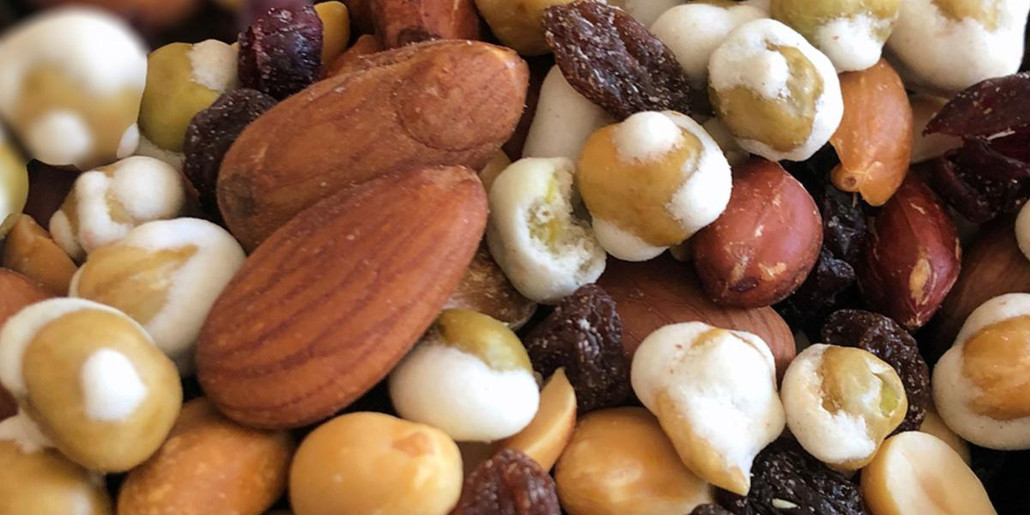Raw vs Roasted Nuts: Which One to Go For?
Posted by Fastachi on 
Health specialists and nutritionists recommend including a diverse range of vegetables, meats, and nuts to maintain a well-balanced and nutritious diet. Although it may seem challenging to ensure that we consume all the essential nutrients, there are simple and accessible solutions available.
Dietary foods can often be monotonous and unappetizing but fear not - nuts are the perfect snack to satisfy our cravings for delicious and healthy food. These little powerhouses can increase our energy levels, enhance blood circulation, and improve our workout routines, making them a fantastic addition to our daily diet.
To roast or not to roast? That is the nutty question on everyone's mind when it comes to if roasted nuts are healthy. This article will detail the use of nuts for a healthy pleasurable diet and the nutrient values in some of the most popular nuts. We'll also explain the benefits of raw vs roasted nuts.
The Difference Between Raw And Roasted Nuts
Nuts are a nutrient-dense food that is a great addition to any diet, and they are rich in fats, protein, fiber, and other essential nutrients for maintaining good health. However, there are some differences in regards to raw vs roasted nuts.
The main difference between roasted and raw nuts is that roasted nuts undergo dry heating during frying or oven-roasting. Dry heating is important to improve the overall taste and crispiness of nuts, and while it enhances the taste, it may increase saturated fat and calorie intake. On the other hand, frying cashews and pistachio nuts preserves the number of fatty acids, as opposed to frying almonds which will increase the content of these acids. This brings the question if roasted nuts good for you. Below we will discuss the benefits of each nut type and whether roasted nuts are healthy.
Raw Nuts
Raw nuts have not undergone any heating or cooking process, and they typically retain their natural flavor and nutritional value.
Notable Benefits of Raw Nuts
- Raw nuts have a high value of nutrients and vitamins; it provides the body with necessary antioxidants and vitamin E, which is good for the skin
- Raw nuts have a lower calorie intake than roasted nuts
- Raw nuts have low sodium levels
- Raw nuts do not contain harmful free radicals
Roasted Nuts
Roasted nuts are those that have been heated through frying or oven-roasting. This process often gives them a distinct flavor and crunch making them an ideal snacking food.
Notable Benefits of Roasted Nuts
- The best benefit of roasted nuts is that they are richer in flavor and have a crunchier texture
- Roasted nuts are good for your digestion
- The roasting process lessens harmful bacteria like Salmonella and E. coli

Raw Cashews $8.00 SHOP NOW |

Simply Roasted Nut Mix $18.69 SHOP NOW |

Salted Almonds $16.49 SHOP NOW |
Roasted Nut Types
Dry Roasting
This method depends on a heat source to roast the nuts at a high temperature while continuously stirring them for even roasting. The following need to be considered to preserve the benefits of roasted nuts:
- Nuts need to be tasted before roasting them
- The duration of roasting; varies depending on the nut type and size
- Different nuts should never be roasted together
- Nut color change and aroma need to be monitored during the roasting process
Oil Roasting
The method can vary between oven roasting or pan frying. When roasting nuts with oil, there are two specific ways to do that:
- Seed batch roasting: The nuts are placed in a stainless-steel furnace and then cooked in oil at a specific temperature until all nuts are crisp equally.
- Continuous roasting: The nuts are continuously fed through a conveyor belt to the roasting machine.
Some industries try to incorporate both methods and depending on the nuts, certain oils are used during the process. Almond nuts are usually roasted in almond oil. And other times, they use unsaturated oils like peanut, canola, or sunflower. The oils are tested beforehand to ensure quality, taste, and freshness.
Which Nute Type Is Good For You?
It is apparent that both raw and roasted nuts have their own benefits. Therefore, when deciding which nut type to go for, consider what suits you best and the cost of each type.
Including a variety of high-quality mixed nuts in your diet has a beneficial aspect that a person shouldn't overlook; This leaves you to decide whether to go for raw nuts that are in their natural state or go with the roasted version if you prefer the rich taste and crunchy texture. Whichever you choose, you will definitely benefit from their nutritional value.
When purchasing roasted nuts, we recommend keeping an eye out for some risks that are relative to the following factors: the roasting and pasteurization process, storing, sodium intake, and artificial enhancement ingredients.
Reading the packaging and nutrient value on the back of the product will help determine which product to buy according to your diet.
Lastly, most nuts generally contain many health benefits as they contain fatty acids such as omega three and vitamin E, which are great for radiant skin and blood circulation, and reducing blood clots. It also reduces inflammation which aids in preventing heart disease, which makes it great for most diets.
Besides being a rich source of healthy fats, nuts also offer essential antioxidants. These essential nutrients shield the body from destructive free radicals that can cause harm to cells and increase the probability of chronic conditions, including heart disease and cancer.
Overall, adding nuts to your diet is an easy and delicious way to boost your nutrient intake and improve your health.




